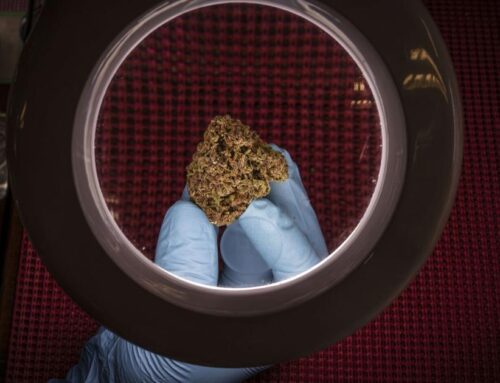Bay state lawmakers tackle wide range of ‘green’ bills
January 3, 2025
In state capitals across the Chesapeake Bay region this year, lawmakers are expected to grapple with renewable energy — how to produce more of it and how to pay for it.
While that theme may unite Maryland, Virginia and Pennsylvania, it is far from the only environmental priority expected to make waves in those Bay drainage states. Here’s a look at the environmental moves each state might make during their legislative sessions this spring.
Maryland
In Maryland, lawmakers will face a fresh batch of legislation on familiar environmental issues during their 90-day General Assembly, which opens Jan. 8. Topping the green wish list are bills to expand clean energy generation, build more climate-friendly buildings and boost the health of the Bay.
Budget bust: Much will depend on how legislators deal with the state’s worsening fiscal crisis. The projected budget gap has grown from $1 billion in the current fiscal year to $2.7 billion in the next one, which begins July 1.
Activists say their overriding priority is to preserve environmental agencies and programs from draconian cuts.
“We know that everything is on the table, and everybody needs to be looking at being part of the solution,” said Kristen Harbeson, legislative director of the Maryland League of Conservation Voters. “But we want to be sure we are protecting what keeps our air, water and land healthy as well as our community safe.”
Democratic Gov. Wes Moore has announced he will introduce what he calls the Bay Legacy Act. It would expand protections for public lands, support agriculture and oyster farming, and boost water quality monitoring.
“We are at a real pivotal moment for Bay restoration, so this Is not time to necessarily backslide,” said Allison Colden, Maryland executive director of the Chesapeake Bay Foundation.
Returning bills: Environmental groups have coalesced around three bills, two of which have failed to win approval in previous years.
The Affordable, Abundant Clean Energy Act would overhaul Maryland’s incentives for developing renewable energy projects while ensuring that ratepayers benefit from them.
Another would authorize the Maryland Department of the Environment to consider cumulative impacts and environmental justice concerns in deciding whether to issue air and water pollution permits. A bill addressing only wastewater permits in 2024 failed to pass.
Groups also want lawmakers to boost recycling by adding a 10-cent refundable deposit to the price of every beverage container sold, redeemable when consumers return their bottles or cans. “Bottle bills” have repeatedly died in Annapolis, but advocates hope to succeed this year, citing estimates that only about 25% of the 5.5 billion drink containers sold annually in Maryland get collected for reuse.
Sidestepping new spending: Most of the bills supported by activists would add little or no costs, while a couple would raise revenue.
“We know that the dollars are tight,” said Josh Tulkin, director of the Maryland Sierra Club. “We are also trying to be part of remedying that situation.”
Advocates are making another run at passing what they call the RENEW Act, which would levy a one-time fee on the world’s top corporate emitters of climate-altering greenhouse gases over the last 30 years. The bill went nowhere in 2024, but supporters contend it could bring in up to $9 billion overall. That could help the state, they say, meet the projected $1 billion needed annually to reduce greenhouse gas emissions 60% by 2031.
Another bill would charge a fee on coal transported across Maryland. The projected $300 million collected annually would be spent cleaning up pollution and easing asthma around the coal export terminal in Baltimore’s Curtis Bay and elsewhere statewide, proponents say.
Greener buildings: TheBetter Buildings Act would promote construction of buildings that don’t rely on fossil fuels.
Climate and transportation: Environmentalists want to formally align Maryland’s long-term transportation planning with the state’s climate action goals and put a higher priority on transit projects.
PFAS: One bill would prohibit pesticides containing so-called “forever chemicals,” while another would require the state to test for PFAS in biosolids being spread on farm fields.
Power lines: Inspired by the recent furor over a proposed transmission line across rural Maryland, at least one bill would seek to curb loss of preserved farmland to such projects.
Virginia
Virginia lawmakers must grapple with increasing energy demands, fight flooding and figure out what to do with a $1.2 billion surplus. The session begins Jan. 8 and ends Feb. 22.
Solar: The Virginia Clean Economy Act requires Dominion Energy to source 100% of its energy from renewables by 2045 and install 16.1 gigawatts of solar and onshore wind energy by 2035.
Carrie Hearne, executive director of the Commission on Electric Utility Regulation, said local governments are increasingly denying solar farms for many reasons but hopes new measures will help inform their reviews.
The newly proposed legislation would standardize local ordinances, provide technical assistance and establish a state review board.
“What we are working for this session is legislation that would give localities a chance to weigh in on what they think regional energy planning should look like,” said Jay Ford, Virginia policy manager for the Chesapeake Bay Foundation.
Data centers: Data centers in Virginia, which house much the world’s internet traffic, are expected to increase energy demand by 183% by 2040 if unconstrained, according to the Joint Legislative Audit and Review Commission.
Last year, lawmakers sponsored 17 data center bills. All failed. Julie Bolthouse, director of land use with the Piedmont Environmental Council, expects to see legislation requiring transparency from data center companies regarding noise, energy demand, water usage and emissions.
Those bills are likely to focus on adding state oversight, such as having the Department of Environmental Quality and the State Corporation Commission provide counties with information about potential impacts on natural resources.
Bolthouse also expects to see legislation on protecting ratepayers from bearing the cost of new transmission lines for these centers and revising the tax credit so that only the most sustainable projects qualify.
Environmental justice: A bill supported by Virginia Interfaith Power and Light requires environmental justice to be factored into the comprehensive planning process.
Flood resilience: The Chesapeake Bay Foundation helped draft legislation to establish a long-term wetlands workgroup and create a fund for helping homeowners build large living shorelines.
Executive director Mary-Carson Stiff of Wetlands Watch said she’s hoping to get another $100 million allocated toward the Community Flood Preparedness Fund. It helps regions plan for and add projects that mitigate flooding. The fund originally relied on the Regional Greenhouse Gas Initiative, which isn’t active. But a recent court case from Floyd County could reinstate it.
Norfolk has used the fund to pay for part of the Coastal Storm Risk Management project. While the federal government pays 65%, Norfolk must pay the remaining $931 million. The city hopes the state will pitch in. With similar projects in their infancy, Stiff said the state should create a process to determine how the state will process such requests.
Budget bump: Lawmakers are entering the second year of the biennium state budget with a $3.2 billion surplus over 2025 and 2026. Republican Gov. Glenn Youngkin amended the budget to put $25 million of that surplus toward updating Richmond’s combined sewer overflow system, $17.4 million toward wastewater treatment and $26 million toward agricultural best management practices.
Environmental groups, lobbyists and lawmakers will all try to get some of those funds. One bill proposes installing electric vehicle charging stations in rural areas. A bill to fund the three-year menhaden study, which was tabled last year, will be up for review again. Others will request money for the Stormwater Local Assistance Fund, land conservation, invasive species management and environmental education.
Aimee Perron Seibert, partner of the lobbying firm Commonwealth Strategy Group, said in a webinar that legislators will be cautious about spending the surplus because of uncertainty around what will happen at the federal level with a new administration. However, she said, lawmakers are open to one-time spending requests.
Pennsylvania
In the nation’s only divided-party state legislature in 2024, environmental groups in Pennsylvania helped get several bills across the finish line. That momentum bodes well for several priorities in 2025, they suggest.
Pennsylvania’s legislature last year put in place bills that provide funds for powering schools with solar energy, plugging abandoned oil and gas wells, cleaning up agricultural and stormwater runoff, and fighting acid mine drainage. Now, environmental groups aim to resolve unfinished business.
“We want to make sure Pennsylvania does its part to push the ball forward,” said Michael Mehrazar, advocacy manager for PennFuture.
The Pennsylvania General Assembly session runs from Jan. 7 through Dec. 31.
Letting the sun in: Chief among the goals is opening the door to a community solar program, already running in 24 states, including those on Pennsylvania’s borders. Community solar would enable residents to pay for and potentially save on their power bills from privately built solar arrays.
With bipartisan support, a bill setting up community solar passed the state House in 2024 but did not come up for a vote in the Republican-controlled Senate, primarily because a provision that would have benefited utilities wasn’t ironed out.
“It’s coming, it’s working and it’s incredibly popular,” said Molly Parzen, executive director of the Conservation Voters of Pennsylvania. She pointed out that all of the legislators with pro-environmental track records were re-elected in November.
Raising the stakes: Lawmakers will also be considering legislation that requires the state to increase power generation from renewable sources.
Democratic Gov. Josh Shapiro has proposed an energy plan to combat climate change that would require that 35% of the electricity would come from solar, wind, nuclear and other clean sources by 2035. The current standard is 4%. That places Pennsylvania —the nation’s second-largest energy-producing state – at a lowly 45th in the nation in requiring renewable energy.
“This is really much needed and long overdue. We really are near the bottom of the barrel when it comes to clean energy development,” said Jen Quinn, legislative and political director of the Sierra Club Pennsylvania Chapter.
RGGI: The fate of the state’s bid to join the Regional Greenhouse Gas Initiative remains unsettled. Former Democratic Gov. Tom Wolf took executive action to join RGGI in 2019. Opposing Republican legislators filed a legal challenge, and the Pennsylvania Commonwealth Court ruled in 2023 that the legislature would have to pass legislation to join the 13-state cap-and-trade compact.
Shapiro has appealed the ruling. Also, following recommendations from an advisory group, he has also proposed an alternative: a state-specific cap-and-invest proposal called the Pennsylvania Climate Emissions Reduction Act.
Some environmental groups favor the established RGGI compact, citing efficiencies with a regional system. Still, the Conservation Voters of Pennsylvania, PennEnvironment, PennFuture and the Sierra Club Pennsylvania Chapter all said they would support the governor’s proposal.
“We would much prefer the courts rule with us that Pennsylvania can participate in RGGI. It’s time tested. It’s partisan. But if the courts rule that that is not an option, this bill is a good alternative,” said Flora Cardoni, deputy director of PennEnvironment.
More environmental bills: Some groups are supporting a bill to require energy and water efficiency in household appliances not already covered by federal regulations. It would include devices such as fryers, steam cookers, faucets, portable toilets and water coolers.
Other initiatives would fund a program to remove lead pipes from schools; secure state funds to combat invasive species; and expand access to electronic waste recycling centers.
But don’t expect bills to place further controls on natural gas fracking in the state. “I think getting anything through with the current makeup of the Senate around fracking would be difficult,” Parzen said.
Search
RECENT PRESS RELEASES
Related Post


